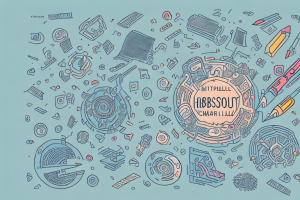Having a hobby is not only a way to pass the time but also an important aspect of personal growth. Engaging in a hobby allows you to explore your interests, develop new skills, and find joy in something outside of your daily responsibilities. However, with countless options available, finding the best hobby for you can be a daunting task. In this article, we will explore various strategies and considerations to help you discover the perfect hobby that aligns with your interests, values, and goals.
Why having a hobby is important for personal growth
Before diving into the process of finding the best hobby for yourself, it’s important to understand the significance of having a hobby in the first place. Hobbies provide an outlet for self-expression, creativity, and relaxation. They offer a break from the stresses of everyday life, allowing you to recharge and rejuvenate. Moreover, hobbies present opportunities to challenge yourself, learn new things, and boost self-confidence as you witness your progress and development. Taking the time to engage in activities you genuinely enjoy can positively impact your overall well-being, mental health, and sense of fulfillment.
Additionally, having a hobby can also enhance your social life. Engaging in a hobby often involves joining clubs, groups, or communities of like-minded individuals who share the same interests. This provides an opportunity to meet new people, make friends, and build a support network. Sharing your hobby with others can create a sense of camaraderie and belonging, fostering meaningful connections and enriching your social interactions.
Assessing your interests and passions
The first step in finding the best hobby for you is to assess your interests and passions. Reflect on activities or topics that have always intrigued you or that you’ve wanted to try but never had the chance. Consider your personal preferences, such as whether you enjoy working with your hands, being outdoors, or engaging in intellectual pursuits. Make a list of potential hobbies that align with your interests and passions, even if they seem unrelated to each other.
Once you have your list of potential hobbies, take some time to research each one. Look for resources, such as books, websites, or local clubs or organizations, that can provide more information about the hobby. Read reviews or testimonials from people who have already pursued the hobby to get a better understanding of what it entails and whether it might be a good fit for you.
Exploring different hobby categories
Once you’ve identified some general interests and passions, it can be helpful to explore different hobby categories. Hobbies can fall into a wide range of categories, such as arts and crafts, sports and fitness, music, cooking, gardening, writing, and more. Research each category, and make note of any hobbies that catch your attention or resonate with your interests. Don’t limit yourself at this stage; the goal is to explore as many options as possible.
Arts and crafts is a popular hobby category that encompasses a wide range of creative activities. This can include painting, drawing, sculpting, knitting, sewing, and much more. Exploring this category can help you discover new artistic skills and express your creativity in different ways.
Sports and fitness is another hobby category that offers numerous options for physical activity and staying active. From team sports like basketball and soccer to individual activities like running and yoga, there are plenty of ways to incorporate exercise into your hobbies. Not only does this category promote a healthy lifestyle, but it also provides opportunities for socializing and meeting new people.
Taking personality traits into consideration when choosing a hobby
Another important factor to consider when selecting a hobby is your personality traits. Take some time to reflect on whether you prefer solitary or social activities, whether you enjoy structured or unstructured tasks, and whether you thrive in competitive or non-competitive environments. Understanding your personality traits can help you choose a hobby that suits your needs and preferences.
Researching popular hobbies in your area
Researching popular hobbies in your area can help you get a sense of what activities are readily available and accessible. Look for hobby groups, clubs, or classes in your community that align with your interests. Consider joining local forums or social media groups dedicated to specific hobbies to connect with like-minded individuals who can provide guidance and support as you explore new activities.
Seeking inspiration from others’ hobbies
If you’re struggling to come up with new hobby ideas, seeking inspiration from others’ hobbies can be incredibly helpful. Talk to friends, family, or colleagues about their hobbies and ask them to share their experiences. Attend hobby-related events or exhibitions to get a firsthand look at different activities. The more you expose yourself to a variety of hobbies, the more likely you are to discover one that sparks your interest.
Trying out various hobbies to find the right fit
When it comes to finding the best hobby for you, nothing beats actually trying out different activities. Once you’ve narrowed down your list of potential hobbies, allocate some time to experiment with each one. Attend a workshop, take a class, or simply try a DIY project on your own. By immersing yourself in the experience, you’ll gain a better understanding of whether the hobby resonates with you and brings you joy.
Evaluating the time and financial commitment of different hobbies
When choosing a hobby, it’s important to consider the time and financial commitment required for each activity. Some hobbies may demand more time and resources than others, both in terms of initial investment and ongoing expenses. Assess your available time and budget, and determine if you’re willing to make the necessary commitment for a particular hobby. Strike a balance between a hobby that challenges you and one that doesn’t overwhelm you.
Considering the physical and mental benefits of potential hobbies
In addition to personal interests, it’s worth considering the physical and mental benefits of potential hobbies. Some hobbies, like gardening or hiking, offer the opportunity to stay active and improve physical well-being. Others, such as reading or painting, have been known to reduce stress and enhance mental clarity. Identifying hobbies that contribute to your overall health and well-being can ensure a more fulfilling experience.
Seeking out local hobby clubs and communities
Engaging with local hobby clubs and communities can enhance your hobby experience by providing a supportive and collaborative environment. Joining a club or community related to your chosen hobby allows you to connect with individuals who share your passion and provides a platform for learning, sharing ideas, and expanding your knowledge. Immersing yourself in a community of like-minded individuals can significantly enhance your engagement and enjoyment of a hobby.
Utilizing online resources to discover new hobbies
In this digital age, the internet offers a treasure trove of resources to discover new hobbies. Explore online forums, tutorials, blogs, and videos to gain insights into various activities. Join online communities and social media groups dedicated to hobbies and take advantage of the wealth of information and inspiration available at your fingertips. Use online resources to spark ideas, learn new techniques, and connect with individuals who share your interests.
Finding a hobby that aligns with your goals and values
As you embark on your hobby journey, consider how your chosen activity aligns with your goals and values. If personal growth, learning, or relaxation are important to you, choose a hobby that fosters these aspects. If you value sustainability or community involvement, seek out hobbies that allow you to contribute to these causes. Ensure that the hobby you choose enhances your life holistically and aligns with your personal values.
Balancing solitary hobbies with social activities
When deciding on a hobby, it’s essential to strike a balance between solitary activities and social interactions. While some hobbies may be more individual-focused, others thrive on community participation. Assess your preferences and evaluate whether you’re seeking a hobby that provides you with solitude and personal reflection or one that offers opportunities for socializing and building connections. Find the right balance that complements your lifestyle and fulfills your social needs.
Incorporating existing skills or interests into a new hobby
One effective approach to finding the best hobby for you is to incorporate your existing skills or interests into a new activity. Consider how you can leverage your current expertise or passions to enhance a different hobby. For example, if you enjoy writing and have an interest in photography, you might explore photojournalism as a hobby. By building on what you already know or love, you can create a seamless transition into a new and exciting hobby.
Experimenting with DIY projects as a starting point for a new hobby
If you’re unsure where to begin, experimenting with do-it-yourself (DIY) projects can serve as an excellent starting point for discovering new hobbies. DIY projects allow you to explore different skills and activities while providing a hands-on experience. Whether it’s trying your hand at woodworking, creating homemade beauty products, or designing your own artwork, DIY projects can help unlock your creativity and open doors to potential new hobbies.
Reflecting on past hobbies to identify patterns or preferences
Looking back on past hobbies can provide valuable insights into what types of activities you genuinely enjoy. Reflect on hobbies you’ve engaged in previously and identify any patterns or preferences that emerge. Consider what aspects of those hobbies brought you the most satisfaction or fulfillment. Use this knowledge to guide your exploration of potential new hobbies and increase the chances of finding one that truly resonates with you.
Overcoming common obstacles when choosing a new hobby
While embarking on a new hobby is an exciting endeavor, it may come with its fair share of obstacles. Common obstacles include lack of time, self-doubt, fear of failure, or uncertainty about where to start. Recognize these challenges as normal and strive to overcome them. Break your hobby journey into smaller, manageable steps, prioritize your time, seek support from others, and embrace the learning process. Remember, the journey of finding the best hobby for yourself is as important as the destination.
Setting realistic expectations for skill development in a chosen hobby
When selecting a hobby, it’s crucial to set realistic expectations for skill development. Understand that acquiring new skills takes time, effort, and patience. Don’t expect to become an expert overnight. Embrace the learning curve and allow yourself to make mistakes along the way. Enjoy the process of skill development and focus on personal growth rather than perfection. By setting realistic expectations, you’ll find greater enjoyment and satisfaction in your chosen hobby.
Embracing the learning process and giving yourself permission to make mistakes
Finally, as you embark on your journey to find the best hobby for you, remember to embrace the learning process and give yourself permission to make mistakes. Every new hobby comes with a learning curve, and it’s natural to make errors along the way. Embracing the learning process allows you to explore, adapt, and grow. Be kind to yourself, stay open-minded, and celebrate both your successes and the lessons learned from your mistakes.
By following these strategies and considering various aspects, you can embark on a rewarding journey to find the best hobby for yourself. Remember, there is no one-size-fits-all approach, and the process may take time. Stay open to new experiences, trust your instincts, and enjoy the exploration. Engaging in a hobby that brings you joy and fulfillment can enrich your life in numerous ways, contributing to your overall well-being and personal growth.



